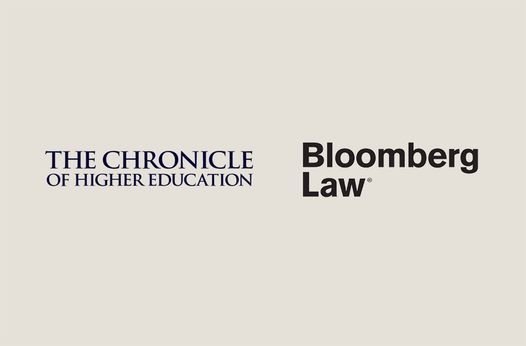Informing Illinois Newsletter - December 2017 Edition
Hinshaw Newsletter | 4 min read
Dec 11, 2017
- Amendments to the State Officials and Employees Ethics Act
- Municipal Employees are Not Protected by Legislative Immunity, according to Federal Judge
- PAC Opinions
Amendments to the State Officials and Employees Ethics Act
On November 17, 2017, the governor signed into law two measures that address sexual harassment in the Illinois state Capitol. Applicable to local governmental units is P.A. 100-554 which amends the State Officials and Employees Ethics Act, specifically, Section 70-5, which pertains to government entities.
The Act mandates all governmental units adopt, within 60 days after the effective date of November 16, 2017, an ordinance or resolution establishing a policy prohibiting sexual harassment. This covers all units of government, municipalities, school boards and library districts. Pursuant to this new mandate, your municipality must adopt an ordinance or resolution establishing a policy prohibiting sexual harassment prior to January 15, 2018.
Municipal Employees are Not Protected by Legislative Immunity, According to Federal Judge
A federal judge has determined that legislative immunity does not protect a municipal employee from liability for legislative actions. Legislative immunity shields legislators from liability for the introduction of, debate about, and voting on legislation.[1] In a recent federal court case, the Director of Planning for the Village of Tinley Park argued that she was entitled to legislative immunity for her actions to assist in the passage of a village ordinance.[2]
In 2009, the Village adopted a master plan for future development of the Village's downtown that included a requirement that all new real estate developments along certain corridors include street-level commercial space.[3] While the Director was employed by the Village, she represented to the village board that a proposed development met all Village zoning requirements.[4] In October 2015, the village board approved amendments to the master plan that "permitted" rather than "required" street-level commercial space.[5]
After the amendments were adopted, the Village set aside the zoning application for the proposed development.[6] The developer and the United States each filed lawsuits alleging violations under the Fair Housing Act.[7] The Village alleged that the lawsuits would not have occurred if the Director of Planning had not "schemed" to change the master plan without the Village's knowledge.[8]
The Village of Tinley Park then filed a lawsuit against the Director of Planning, alleging that she breached her fiduciary duty by scheming with the development to amend the Village's master plan without its knowledge. The Director of Planning filed a motion to dismiss the lawsuit, claiming legislative immunity shielded her from any liability for her actions in connection with the passage of the ordinance in question.
In the order denying the motion to dismiss, the federal judge explained that, in Illinois, members of a municipal council are not personally liable for legislative acts.[9] But, Illinois courts have not addressed whether this legislative immunity extends to employees of a municipality who participate in the legislative process.[10]
The Director of Planning attempted to argue that the court should apply federal legislative immunity. Federal law protects non-legislators from liability when the actions in question are "essentially legislative in nature."[11] The federal judge declined to apply the federal view of legislative immunity because Illinois courts have not extended legislative immunity in this way in other cases.[12] The judge did not address whether qualified immunity applied to the case because the Director of Planning did not raise the issue and it likely involved factual questions that could not be resolved in the motion to dismiss.[13]
Instead, the federal judge determined that, in Illinois, a municipal employee is not entitled to legislative immunity, even if the employee's alleged actions were connected to the legislative process.[14] This was the first court to directly address whether municipal employees are entitled to legislative immunity.
Consequently, it has been made clear that a Village Board member would receive legislative immunity for any action connected to the enactment of an ordinance, but an employee of the Village would not receive the same protection. Still, a municipal employee could receive qualified immunity for performing discretionary duties. In other words, a municipal employee will not be held personally liable for performance of discretionary duties in good faith.[15]
The Director of Planning now has the opportunity to appeal the court's decision to the 7th Circuit to challenge the judge's determination. Additionally, in the future, an Illinois court could choose to extend the immunity to non-legislators for actions that are legislative in nature.
At this time, the federal court's decision has established that a municipal employee does not receive a blanket protection from liability for legislative actions. Instead, the employee may only be shielded by qualified immunity if the court determines that the employee was performing discretionary duties in good faith.
To date in 2017, the Public Access Counselor of the Attorney General's Office has issued 13 binding opinions, each of which has concluded that the public body violated either the Open Meetings Act, 5 ILCS 120/1 et seq., or the Freedom of Information Act, 5 ILCS 140/1 et seq. The November newsletter contained summaries of the 11 opinions that had been issued. Since then, two new opinions have issued and are summarized below.
No. 17-012
A public body may not withhold recordings of a meeting under Section 7(1)(f), exempting from disclosure "preliminary drafts, notes, recommendations, memoranda, and other records in which opinions are expressed, or policies or actions are formulated," if the meeting in question was open to the public.
No. 17-013
A public body may not go into closed session to discuss an elected official's actions because an elected official is not an employee under Section 2(c)(1). Further, when actions cannot be subject to an adjudicatory or quasi-adjudicatory process, the public body may not go into closed session to discuss such actions.
[1] Redwood v. Lierman, 331 Ill. App. 3d 1073, 1088 (4th Dist 2002).
[2] Village of Tinley Park, IL v. Amy Connolly, No. 17 C 3271.[3] Id.
[4] Id.
[5] Id.
[6] Id.
[7] Id.
[8] Id.
[9] Id.
[10] Id.
[11] Dombrowski v. Eastland, 387 U.S. 82 (1967).
[12] Village of Tinley Park, IL v. Amy Connolly, No. 17 C 3271.[13] Id.
[14] Id.
[15] Kinzer on Behalf of the City of Chicago v. City of Chicago, 539 N.E.2d 1216, 1220 (1989).
For more information, please contact Charles Schmadeke.
Featured Insights

Employment Law Observer
Dec 8, 2025
12 Days of California Labor and Employment: 2025 Year in Review

Press Release
Dec 4, 2025
Hinshaw Recognized by the Leadership Council for Legal Diversity as a 2025 Top Performer

Press Release
Nov 25, 2025
Hinshaw Legal Team Secures Summary Judgment in Gas Station Injury Case

Press Release
Nov 18, 2025
Hinshaw Releases the Third Edition of Duty to Defend: A Fifty-State Survey

In The News
Nov 13, 2025
A Profile on Neil Rollnick: After 57 Years in Practice, He Has No Plans to Retire

Press Release
Oct 22, 2025
Hinshaw & Culbertson LLP Launches New Website and Refreshed Brand







